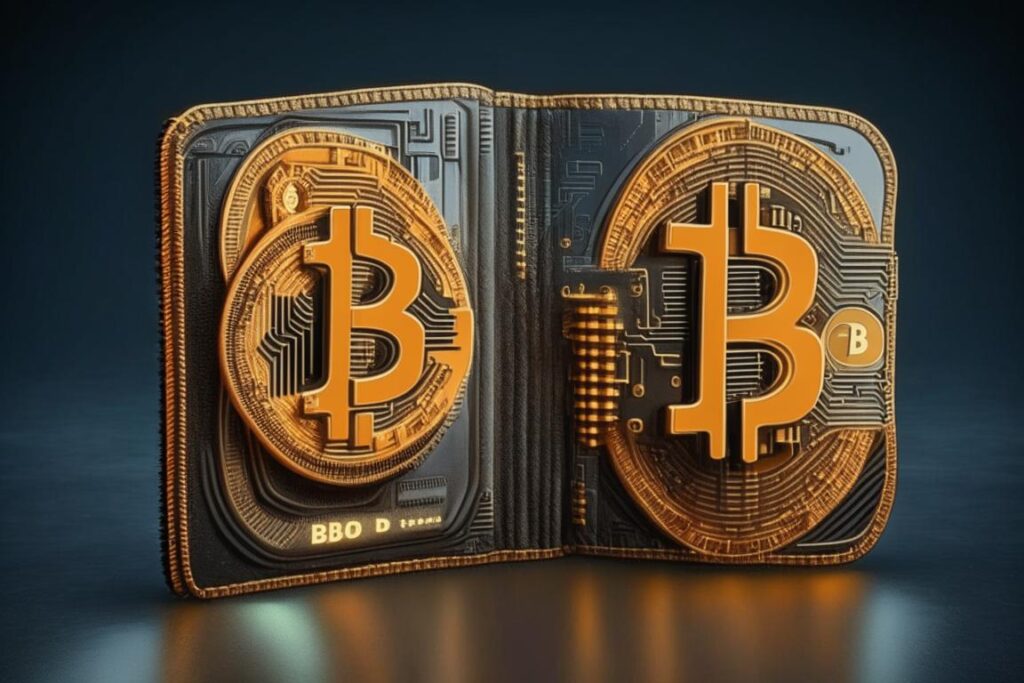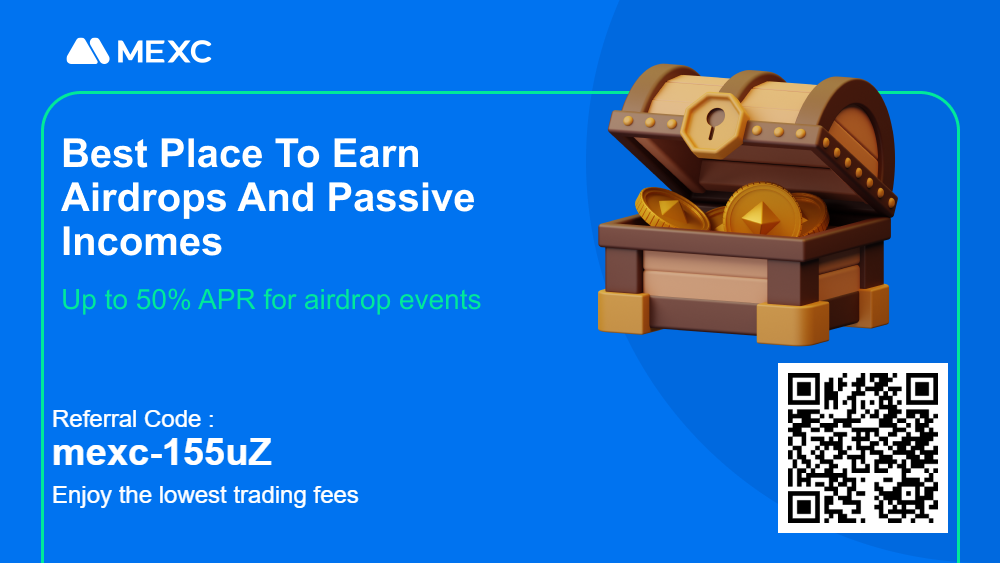Bitcoin, the world’s first decentralized digital currency, has revolutionized the way we think about money. But how does one use Bitcoin? In this comprehensive guide, we’ll walk you through the essential steps to get started with Bitcoin. Whether you’re a beginner or an experienced user, this guide will provide valuable insights into the world of Bitcoin.
Table of Contents
Understanding Bitcoin
Bitcoin is a digital currency that operates independently of any central authority. It was created in 2009 by an anonymous person or group known as Satoshi Nakamoto. Bitcoin transactions are recorded on a public ledger called the blockchain, which is maintained by a network of computers called nodes.
Setting Up a Bitcoin Wallet

A Bitcoin wallet is essential for anyone looking to use Bitcoin. It allows you to store, send, and receive Bitcoin securely. Setting up a Bitcoin wallet involves a few key steps, and there are several types of wallets to choose from, each with its own features and security measures.
What is a Bitcoin Wallet?
A Bitcoin wallet is a digital tool that allows you to manage your Bitcoin holdings. It consists of a public key, which is like an address that others can see and send Bitcoin to, and a private key, which is known only to you and is used to sign transactions and access your funds. It’s crucial to keep your private key secure, as anyone with access to it can control your Bitcoin.
Types of Bitcoin Wallets
There are several types of Bitcoin wallets, each with its own advantages and security features:
- Hardware Wallets: These are physical devices that store your private keys offline, making them immune to online hacking attempts. They are considered one of the most secure options for storing Bitcoin.
- Software Wallets: These are applications that you can install on your computer or mobile device. They offer a good balance between convenience and security, but you need to ensure your device is protected from malware.
- Mobile Wallets: These are apps designed for smartphones, allowing you to manage your Bitcoin on the go. They are convenient for everyday transactions but may be less secure than hardware wallets.
- Web Wallets: These are online services that store your Bitcoin in the cloud. They are accessible from any device with an internet connection but may be vulnerable to hacking.
- Paper Wallets: These are physical documents that contain your public and private keys in the form of QR codes. They are immune to online threats but can be lost or damaged.
Securing Your Bitcoin Wallet
Protecting your Bitcoin wallet is crucial to prevent unauthorized access and potential loss of funds. Here are some tips to enhance the security of your wallet:
- Use Strong, Unique Passwords: Create a strong password for your wallet that is difficult to guess. Avoid using easily accessible information like birthdays or common words.
- Enable Two-Factor Authentication (2FA): 2FA adds an extra layer of security by requiring a second form of verification, such as a one-time code sent to your phone, in addition to your password.
- Keep Wallet Backups: Make regular backups of your wallet and store them in secure locations, such as an encrypted USB drive or a safe deposit box. This ensures you can recover your funds if your device is lost or damaged.
- Be Wary of Phishing Attacks: Be cautious when clicking on links or downloading files from unknown sources. Cybercriminals may use phishing tactics to steal your wallet credentials.
By following these steps and choosing the right type of wallet for your needs, you can securely store and manage your Bitcoin holdings.
Acquiring Bitcoin

Acquiring Bitcoin is the first step to becoming a part of the cryptocurrency ecosystem. There are several methods to obtain Bitcoin, ranging from purchasing it on exchanges to earning it through mining or as payment for goods and services. Each method has its own advantages and considerations.
Buying Bitcoin
Purchasing Bitcoin is the most straightforward way to acquire it. You can buy Bitcoin on cryptocurrency exchanges using fiat currency, such as US dollars or euros. Here’s a step-by-step guide:
Choose a Reputable Exchange:
| Platform | Pros | Cons |
|---|---|---|
| MEXC | User-friendly interface, wide range of cryptocurrencies, lowest crypto exchange fees, advanced trading features | Platform may be complex for beginners, slow customer service response times |
| Binance | Large number of cryptocurrencies, advanced trading features, high liquidity, user-friendly interface | Reports of delayed customer service responses, potential target for hackers |
| Gate.io | Wide range of cryptocurrencies, advanced trading features, user-friendly interface, educational resources for beginners | Higher trading fees, does not support fiat currency deposits or withdrawals |
| OKX | Large number of cryptocurrencies, advanced trading features, competitive fees, user-friendly interface, educational resources for beginners | Reports of account freezes without prior notice, slow customer service response times |
| BingX | Advanced trading features, high leverage, ability to copy trades from successful traders, user-friendly interface | Smaller selection of cryptocurrencies, less liquidity due to smaller user base |
Research and select a reputable cryptocurrency exchange that offers a user-friendly interface, strong security features, and a wide range of supported fiat currencies and payment methods.
Create an Account:
Sign up for an account on the chosen exchange. You’ll typically need to provide your email address, create a password, and verify your identity by providing personal information and documents.
Deposit Fiat Currency:
Deposit your chosen fiat currency into your exchange account. Most exchanges support bank transfers, credit/debit card payments, and other payment methods.
Buy Bitcoin:
Navigate to the trading section of the exchange, select Bitcoin, and enter the amount you want to purchase. Confirm the order and complete the transaction.
Withdraw Bitcoin to Your Wallet:
For added security, withdraw the purchased Bitcoin to your personal Bitcoin wallet. This ensures you have full control over your funds and reduces the risk of exchange-related issues.
Earning Bitcoin
There are several ways to earn Bitcoin without buying it:
Mining:
Bitcoin mining involves using powerful computers to solve complex mathematical problems, known as proof-of-work. Miners who successfully solve these problems are rewarded with newly minted Bitcoin. However, mining requires significant computational power and energy consumption, making it less feasible for individuals.
Accepting Bitcoin as Payment:
If you run a business or offer services, you can choose to accept Bitcoin as a form of payment. This allows you to earn Bitcoin while providing goods or services to your customers.
Earning Interest:
Some platforms allow you to earn interest on your Bitcoin holdings by lending them to other users or participating in staking programs.
Airdrops and Giveaways:
Occasionally, cryptocurrency projects distribute free tokens to holders of a specific cryptocurrency, known as airdrops. Additionally, some platforms or influencers may host giveaways where participants can win Bitcoin.
Receiving Bitcoin
You can also receive Bitcoin from others by providing them with your Bitcoin wallet address. This is commonly used for peer-to-peer transactions, gifts, or donations.
When acquiring Bitcoin, it’s essential to consider factors such as transaction fees, security, and regulatory compliance. Ensure you store your Bitcoin securely in a private wallet and stay informed about the latest developments in the cryptocurrency space.
Using Bitcoin for Transactions
Using Bitcoin for transactions allows you to send and receive funds without the need for intermediaries like banks. Bitcoin transactions are secure, transparent, and can be conducted globally. Whether you’re making a purchase, sending money to a friend, or receiving payment for services, Bitcoin offers a versatile and efficient way to transact.
How Do Bitcoin Transactions Work?
Bitcoin transactions involve the transfer of Bitcoin from one wallet to another. The process is facilitated by the Bitcoin network and recorded on the blockchain. Here’s how it works:
- Initiation: The sender initiates the transaction by specifying the recipient’s Bitcoin address, the amount to be sent, and any optional transaction fees. The sender then signs the transaction with their private key.
- Broadcast: The signed transaction is broadcast to the Bitcoin network, where it is picked up by miners.
- Confirmation: Miners verify the transaction by checking its validity and ensuring the sender has sufficient funds. Once verified, the transaction is included in a new block and added to the blockchain.
- Completion: The recipient’s wallet balance is updated to reflect the received Bitcoin. The transaction is now complete and irreversible.
Sending and Receiving Bitcoin
To send or receive Bitcoin, you’ll need a Bitcoin wallet. Here’s how to conduct transactions:
Sending Bitcoin:
- Open your Bitcoin wallet and select the “Send” option.
- Enter the recipient’s Bitcoin address and the amount you want to send.
- Review the transaction details, including any fees, and confirm the transaction.
- Your wallet will sign the transaction with your private key and broadcast it to the network.
Receiving Bitcoin:
- Open your Bitcoin wallet and select the “Receive” option.
- Share your Bitcoin address with the sender. This address is a string of characters that allows others to send Bitcoin to your wallet.
- Once the sender initiates the transaction, your wallet will automatically update your balance once the transaction is confirmed.
Transaction Fees
Bitcoin transactions may incur fees, which are paid to miners for processing and confirming the transaction. Fees are typically based on the transaction size and network congestion. Higher fees can result in faster confirmation times. Most wallets allow you to set custom fees, but it’s essential to strike a balance between cost and speed.
Ensuring Secure and Successful Transactions
To ensure secure and successful Bitcoin transactions, consider the following tips:
- Verify Addresses: Double-check the recipient’s Bitcoin address before sending funds. Mistakes can result in irreversible losses.
- Use QR Codes: When sharing your Bitcoin address, consider using QR codes to reduce the risk of errors.
- Monitor Confirmations: Track the transaction on a blockchain explorer to see the number of confirmations. More confirmations indicate higher security.
- Protect Your Wallet: Keep your wallet secure by using strong passwords, enabling two-factor authentication, and keeping backups.
Bitcoin Use Cases

Bitcoin’s decentralized nature and global accessibility make it a versatile tool for various use cases. From online purchases to investment opportunities, Bitcoin offers a wide range of applications that extend beyond traditional fiat currencies. Here are some of the most common use cases for Bitcoin:
Online Purchases
Bitcoin is increasingly accepted as a payment method by online retailers and service providers. Whether you’re buying electronics, booking a hotel, or paying for a subscription service, Bitcoin offers a fast and secure way to make online purchases. Some major companies that accept Bitcoin include Overstock, Newegg, and Expedia. Additionally, payment processors like BitPay and CoinGate allow merchants to accept Bitcoin payments easily.
Peer-to-Peer Transactions
Bitcoin’s decentralized nature makes it an ideal medium for peer-to-peer transactions. You can send and receive Bitcoin directly with others without the need for intermediaries like banks. This allows for faster and cheaper transactions, especially for international transfers. Bitcoin’s peer-to-peer capabilities are particularly valuable in regions with limited access to traditional banking services.
Investment and Trading
Bitcoin is a popular asset for investment and trading. Many investors view Bitcoin as a store of value or a hedge against inflation. Additionally, Bitcoin’s price volatility makes it an attractive asset for traders looking to capitalize on price swings. Various platforms, such as cryptocurrency exchanges and trading apps, allow users to buy, sell, and trade Bitcoin. It’s essential to conduct thorough research and consider your risk tolerance before investing or trading Bitcoin.
Remittances and Cross-Border Payments
Bitcoin offers a cost-effective and efficient solution for remittances and cross-border payments. Traditional remittance services often involve high fees and slow processing times. In contrast, Bitcoin transactions can be completed within minutes, regardless of geographical boundaries, and typically incur lower fees. This makes Bitcoin an attractive option for sending money to family and friends abroad or conducting international business transactions.
Charitable Donations
Many charitable organizations accept Bitcoin donations. Bitcoin’s global reach and ease of use make it a convenient way for donors to support causes they care about. Additionally, Bitcoin donations can be more transparent, as transactions are recorded on the public blockchain. Some well-known charities that accept Bitcoin donations include Save the Children, The Water Project, and the Electronic Frontier Foundation.
Micropayments
Bitcoin’s divisibility and low transaction fees make it suitable for micropayments. Micropayments are small transactions, often less than a dollar, that are typically impractical with traditional payment methods due to high fees. Bitcoin allows for efficient micropayments, enabling new business models and monetization strategies, such as pay-per-view content or micro-donations.
Risks and Considerations
While Bitcoin offers numerous benefits, it also comes with certain risks and considerations. It’s essential to be aware of these factors and take appropriate precautions when using Bitcoin. Here are some of the key risks and considerations associated with Bitcoin:
Volatility

Bitcoin’s price is known for its volatility, with frequent and sometimes significant price fluctuations. This volatility can be influenced by factors such as market sentiment, regulatory developments, technological advancements, and macroeconomic trends. While volatility can present trading opportunities, it also increases the risk of loss. It’s essential to carefully consider your risk tolerance and investment goals before engaging in Bitcoin trading or investment.
Security
Security is a crucial consideration when using Bitcoin. Since Bitcoin transactions are irreversible, it’s vital to protect your Bitcoin holdings from theft, fraud, and loss. Here are some security tips:
- Secure Your Wallet: Use strong, unique passwords for your Bitcoin wallet and enable two-factor authentication. Keep wallet backups in secure locations.
- Beware of Phishing Attacks: Be cautious when clicking on links or downloading files from unknown sources. Cybercriminals may use phishing tactics to steal your wallet credentials.
- Use Reputable Exchanges: Choose reputable cryptocurrency exchanges with robust security measures, such as cold storage and encryption.
- Avoid Public Wi-Fi: Avoid accessing your Bitcoin wallet or conducting transactions on public Wi-Fi networks, as they may be less secure.
Regulatory and Legal Considerations
The regulatory landscape for Bitcoin varies by jurisdiction and is continually evolving. It’s essential to be aware of the regulatory and legal implications of using Bitcoin in your region. Some considerations include:
- Taxation: In many countries, Bitcoin transactions are subject to taxation. It’s essential to understand the tax implications of your Bitcoin activities and report them accordingly.
- Anti-Money Laundering (AML) and Know Your Customer (KYC) Regulations: Many cryptocurrency exchanges and service providers require users to comply with AML and KYC regulations, which may involve providing personal information and documents.
- Legal Status: The legal status of Bitcoin varies by jurisdiction. In some countries, Bitcoin is recognized as legal tender, while in others, it may be subject to restrictions or bans.
Lack of Consumer Protections
Unlike traditional financial systems, Bitcoin operates in a decentralized manner without intermediaries. While this offers greater control over your funds, it also means that there may be fewer consumer protections in place. If you fall victim to fraud or make an error in a Bitcoin transaction, it may be challenging to recover your funds.
How to Use Bitcoin Online and Offile Courses
For those looking to learn more about how to use Bitcoin, there are numerous online courses and educational resources available. These courses cover a wide range of topics, from the basics of Bitcoin and blockchain technology to more advanced topics such as trading and investment strategies. Many of these courses are free and accessible to anyone with an internet connection. Some popular platforms that offer Bitcoin courses include Coursera, Udemy, and Khan Academy. These courses are designed to help users understand the fundamentals of Bitcoin, how to set up a wallet, how to acquire and use Bitcoin, and how to navigate the cryptocurrency ecosystem.
In addition to online courses, there are also community-led initiatives that aim to educate users about Bitcoin. One such initiative is Bitcoinbeach, led by Roman Martínez, a community leader at Bitcoinbeach. Roman Martínez, also known as “chimbera” on Twitter, has been actively promoting Bitcoin adoption in El Salvador and educating the local community about how to use Bitcoin. You can follow Roman Martínez on Twitter @romanmartinezc to stay updated on the latest developments and educational resources related to Bitcoinbeach.
Today, the #Bitcoinbeach team had a good time with students from La Perla teaching the #ABC of #Bitcoin . All of the students they received a bonus in Bitcoin, and they did their first Bitcointransaction, which is so gratifying🚀🚀🚀@Bitcoinbeach pic.twitter.com/X5vREZ9JFq
— Roman Martínez🇸🇻⚡️ (chimbera) (@romanmartinezc) August 19, 2023
By taking advantage of these educational resources and courses, you can gain a deeper understanding of Bitcoin and how to use it effectively. Whether you’re new to Bitcoin or looking to enhance your knowledge, these courses and initiatives provide valuable insights and practical skills to navigate the world of cryptocurrency.
Conclusion
Bitcoin, the world’s first decentralized digital currency, has come a long way since its inception in 2009. It has transformed the way we think about money, offering a new and innovative way to transact, invest, and store value. With its global accessibility, security features, and potential for financial inclusion, Bitcoin has the potential to revolutionize the financial landscape.
However, as with any new technology, it’s essential to approach Bitcoin with a balanced perspective. While it offers numerous benefits, it also comes with certain risks and considerations. Volatility, security concerns, regulatory implications, and the lack of consumer protections are all factors that need to be carefully considered when using Bitcoin.
As we’ve explored in this comprehensive guide, using Bitcoin involves several key steps, including setting up a Bitcoin wallet, acquiring Bitcoin, and conducting transactions. By following best practices and staying informed about the latest developments in the cryptocurrency space, you can navigate the world of Bitcoin with confidence.
Whether you’re making online purchases, sending money to friends and family, investing, or supporting charitable causes, Bitcoin offers a versatile and efficient way to transact. As Bitcoin adoption continues to grow, we can expect to see even more innovative use cases and applications emerge.
In conclusion, Bitcoin is more than just a digital currency; it’s a technological innovation that has the potential to reshape the financial system and empower individuals worldwide. By understanding how to use Bitcoin and being aware of the associated risks and considerations, you can be part of this exciting and transformative journey.
Remember to conduct thorough research, consider your risk tolerance, and seek professional advice if needed. With the right approach, you can enjoy the benefits of Bitcoin while managing the associated risks. Share this guide with others interested in Bitcoin and help them get started on their journey into the world of cryptocurrency.


